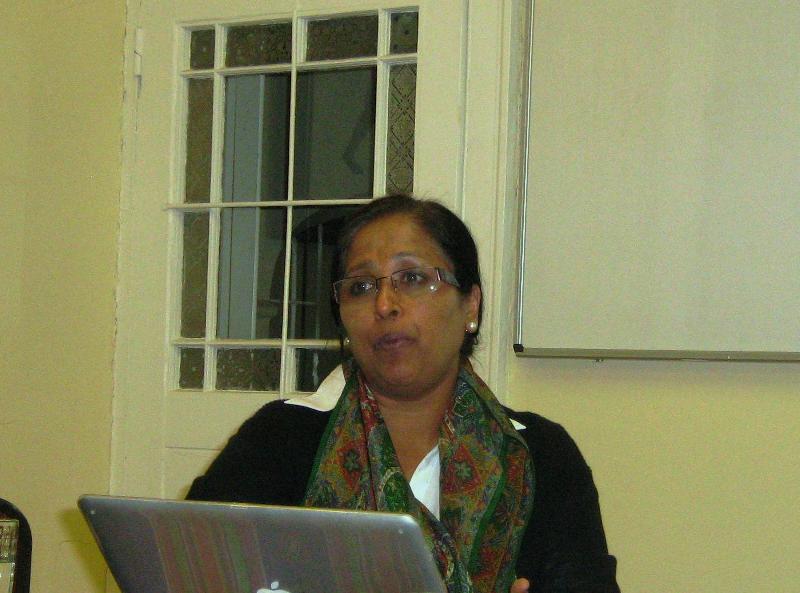
Dr Renu Modi, a senior lecturer and former director of the Centre for African Studies at the University of Mumbai, recently presented a seminar that focussed on a large infrastructure and resettlement project in Mumbai. Her paper highlighted key lessons emanating from the Mumbai Transport Project (MUTP) in the context of populous cities and resettlement policies.
Central challenges such as political interference, communication issues and the sheer volumes of project-affected parties were just some of the fascinating issues Dr Modi shared on this first-of-its-kind project.
The MUTP is a World Bank co-funded project in which Dr Modi was involved as a consultant. The project was a ‘first’ in many respects. She discussed the significance of the MUTP firstly in the resettlement of approximately 20 000 project-affected households and secondly for its multi-agency, community oriented approach.
The sheer population densities and multitude of infrastructure projects present interesting challenges in the process of resettlement. Dr Modi says, “If you have dealt with resettlement in Mumbai, the other projects seem very small”.
Reported population densities in excess of 30 000 inhabitants per square kilometre and a population of 12 million in greater Mumbai alone prompted her apt description of the MUTP as a “laboratory live experiment”.
Dr Modi’s talk was both humorous and insightful. A generous sprinkling of anecdotes illustrated the myriad of issues involved in human resettlement. Emphasising that “Mumbai cannot be read to be understood - it has to be seen”, she illustrated the complexities of resettlement and rehabilitation in Mumbai with pictures taken during her field work.
“Poor government disclosure of project information and listing of project-affected households, anti-displacement protests and the resulting government responses all provide rich lessons for other projects” noted Dr Modi. In the majority of cases, resettled people protested not about relocation per se but to being relocated far away from amenities such as hospitals and schools.
Shop keepers, for example, resisted relocation to distant areas such as Mankhurd where target markets for products such as tiles and automotive parts would have be limited among relocated poor communities.
In conclusion, Dr Renu highlighted the far-reaching lessons learnt from the MUTP for India and other projects around the world as well the need to undertake comprehensive, careful community consultations.
Dr Modi holds a political science degree from the Lady Shree Ram College for Women in Delhi. Presently, her study focus is on the connections between Indians in Africa and India itself. She obtained her PhD from Jawaharlal Nehru University, with other areas of specialisation including human rights, livelihood reconstitution and Southern Africa urban issues.
The seminar was jointly hosted with the Rhodes Humanities and Anthropology Departments.
Story and picture by Zukiswa Kota.
